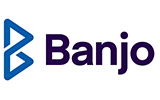What is a working capital loan?
A working capital loan is a short-term loan designed to finance the day-to-day operations of a business. A business may need a working capital loan to cover expenses such as wages, paying invoices and paying for marketing costs.
Sometimes the term 'working capital loan' is used to describe a general business loan where the funds are borrowed against future cash flow. However, it's more generally used in reference to loans to finance business operating costs that would be otherwise be funded by the business's current assets.
Accessing funds for working capital is the most common reason businesses request a loan, accounting for 31.7% of all loans according Money.com.au's analysis of more than 10,000 finance requests. The average working capital loan is $118,833.
How do working capital loans work?
Working capital loans work differently depending on the lender, but generally, they work just like a short-term business loan. You’ll agree to borrow a specific amount which will be repaid over an agreed term – usually up to 12 months.
Depending on the type of business you operate, your credit profile, and the lender you apply with, you can generally borrow anywhere between $5,000 and $1 million (or sometimes more).
A working capital loan can be secured by an asset the business owns, but is usually an unsecured business loan where eligibility is assessed based on your capacity to generate ongoing revenue to repay the loan.
Interest rates on finance for working capital
See below some of the best rates on working capital finance among the lenders in our database.
| Loan | Interest rates | Loan amounts | Loan terms |
|---|---|---|---|
| BOQ Business Loan | 7.50% | Up to $250k | Quoted on application |
| Liberty Business Loan | 7.95% - 17.45% | Up to $350k | 1 - 7 years |
| Moneytech Business Loan | 7.99% - 9.56% | $25k - $2m | Quoted on application |
| Group And General Business Loan | 8.29% - 10.89% | $10k - $350k | 1 - 5 years |
| Multipli Business Loan | 8.49% | $30k - $1m | Quoted on application |
| TruePillars Business Loan | 9.90% - 20.90% | $25k - $300k | 1 - 7 years |
| Finance One Business Loan | 11.45% - 23.45% | $5k - $250k | Up to 7 years |
| Drive Finance Solution Business Loan | 12.54% - 14.80% | Up to $300k | 1 - 5 years |
| Dynamoney Business Loan | 12.85% - 19.40% | $2k - $1m | 6 months - 7 years |
| Azora Finance Business Loan | 12.95% - 14.95% | $1k - $250k | Quoted on application |
Types of working capital loans
Working capital finance is a very broad category and there are several products a business can use to access working capital. They can be grouped together into main categories:
Term loan
Essentially this is a one-off loan with a fixed term and borrowing amount. It can either be a loan to cover a range of general costs, or it may be for a single specific cost, such as fitting out an office or purchasing inventory. These kinds of business loans can be secured or unsecured.
Revolving line of credit
Some businesses prefer to have an ongoing source of finance to cover expenses as they crop up, without a more flexible credit limit and the need to reapply for finance again and again. A business line of credit and a business overdraft are the most popular options, but a product like invoice finance can also provide a regular supply of funds, depending on how the business operates. A business credit card is another option here.
Here's a further breakdown of these options:
Unsecured business loan
A business loan that doesn’t require any security and can be used for any purpose. They can be ideal for short-term finance needs. Approval on an unsecured business loan can be fast, but they usually have higher interest rates than secured finance.
Secured business loan
Similar to an unsecured loan but with better rates and options. Commonly used for larger loans or for longer-term finance.
Line of credit
An amount of money you can access as you choose to, made available by a lender for a set period of time. Provides great flexibility in how and when the money is used. It can help keep costs low as interest is only charged on the amount drawn down.
Overdraft
Similar to a line of credit, an overdraft is instead a backstop form of finance that allows you to access funds by being able to withdraw more than what is in your business bank account.
Invoice finance
A unique form of finance where you sell your outstanding invoices to a third-party financier, who will pay out a percentage of the invoice value upfront, and the remainder (minus a fee) once they have collected the payment from the other business.
Business credit card
Allows you to access credit to make payments for any business purpose, up to a limit. Credit card interest rates tend to be high, but some come with certain perks, like reward points and airport lounge access.
Who uses working capital loans?
Working capital loans are consistently popular with small-business owners, which is no surprise considering the vast majority of businesses in Australia are SMEs.
They are widely used across diverse industries, with the greatest concentration in construction, real estate, IT, and motor vehicle services, our data shows.
Agriculture businesses request the highest average working capital loan ($290,519) – not surprising for a capital-intensive sector.
How to apply for a working capital loan?
Working capital loans are designed to provide fast access to cash when it’s needed, particularly by SMEs and when there may not be sufficient documentation to apply with your bank.
The minimum requirements in Australia are:
- An ABN
- A GST-registered business
- Citizen or permanent resident
- A minimum business-operating time of six months
- Business bank statements
You can apply for a small business loan with banks or non-bank lenders, although with some lenders you can only apply via a business loan broker.
Non-bank lenders will generally offer the fastest approval and most flexible lending arrangements. Banks tend to have stricter lending criteria.
Getting a working capital loan is generally more straightforward for businesses with an established trading history. In fact, almost two-thirds (62.9%) of businesses that apply for working capital finance through Money.com.au have been trading for more than three years.
Ready to compare working capital loans?
Get your best offers from multiple lenders. There's no obligation and checking your rates won't impact your credit score.






















